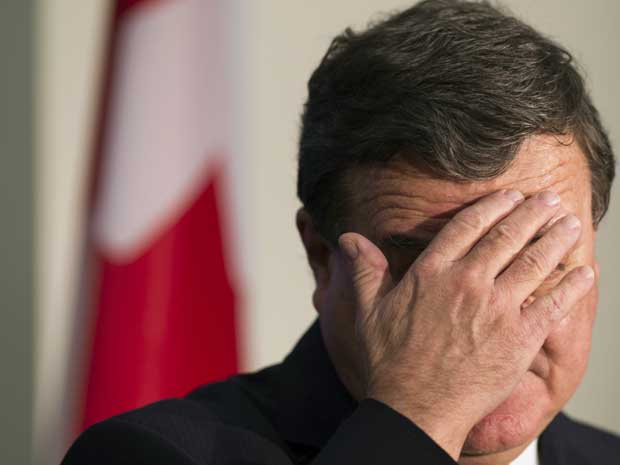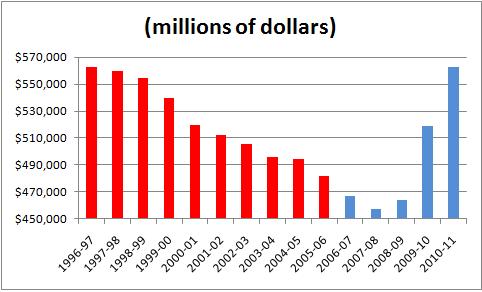
Conservatives: Don’t worry, we’re going deeper into deficit
Finance Minister Jim Flaherty confirmed that Canada is in deeper economic trouble than anyone was willing to tell us. They didn’t want us to know how much they actually spent and they tried their best to hide the numbers, as the Auditor General pointed out last month, but as we crunch the numbers, we see that this government has spent more than any government in Canadian history.
For the second time in their mandate, after initially promising to never run a deficit, the Conservatives have announced that they have lost track of the numbers. Canada entered the recession with a deficit and now that the recession is gone, Canada is going deeper into deficit. Where, oh where, has the money gone?
In the simplest of terms, they spent and over spent. Stephen Harper once preached a model of smaller government, efficiency and reduced expenditure and that entire view went out the window once elected in 2006. The entire Canadian deficit can be attributed to a spending problem, a chronic one. Harper’s government is finding it easy to spend, spend more than any government has in history, but when it comes to making the cuts that count, they are unable as they now realize it would mean dismantling all that they have built.


This government isn’t fiscally conservative, not even close. Its problem is one of spending and a massive overhaul of their priorities and tactics will be needed in order to resolve the deficit in the timeline they outlined. However, given how limited and how unreliable the information that is made public actually is, there is no guarantee that the deficit will be $27 billion this year rather than $21 billion and not even higher.
The PBO is poised to take this government to court for the information that should be available to all MPs and all Canadian taxpayers. The money that is put into this system is ours, and not the Conservatives’ and as such they should have the respect to let us know how our finances actually are doing and take approaches to fix their mess – which was created before the world’s turmoil even began – rather than make painful announcements in Switzerland.
However, given the secrecy of this government, even towards its cabinet and own MPs, any decision Flaherty makes will be blindfolded, if he even gets to make them.
Again we must ask where the money went, again we must ask if the numbers we are given are reliable, again we must ask if the Conservatives even know what they are doing. As Flaherty tried to frame his announcement with a warning to the US congress, Canadians should not be gullible enough to believe that Flaherty’s management of our money depends on every decision of the United States. However, do be advised that the Conservatives will try every possible excuse in the book to appear credible while destroying Canada’s fiscal picture. They did so successfully in 2008, when Canadians first learned of the deficit, and somehow forgave them. The Conservatives inherited and squandered a $13 billion surplus and somehow convinced the masses that they were the party of the economy, and here we are, four years later, and instead of getting on track to better fiscal health, Canada is back down into a deficit trend. It is no wonder they tried so hard to hide how much they actually spend.
Do you believe in the numbers the government claims are the actual figures for Canada’s fiscal state? Do you think the Conservatives have repeated the history of Mulroney’s Progressive Conservatives in leaving behind an economy that is on the brink of collapse? How big of a clean up will the next government have to make before it can restore Canada to a good economic footing?




